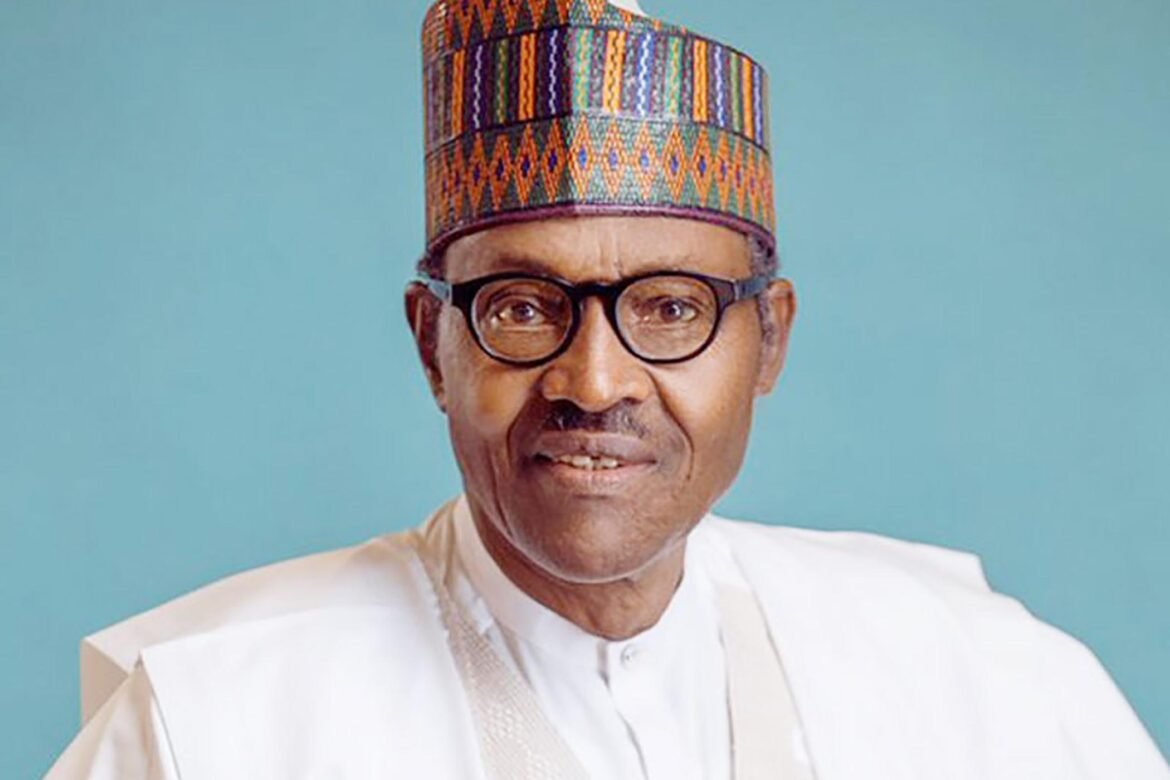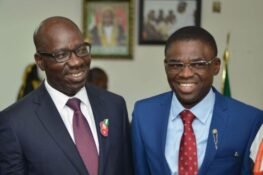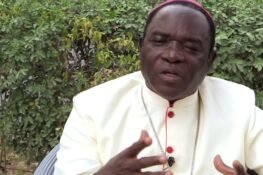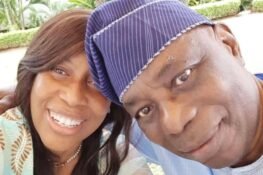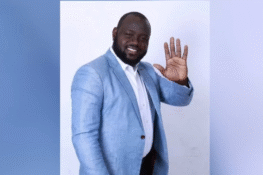It’s an open secret that Governor Nyesom Wike of Rivers State earned himself a place in the black book of the Nigerian Army.
Since the December 2016 leak of an audio recording of a telephone conversation between him and the then governor of Ekiti State, Ayodele Fayose where both men reportedly mocked the army, top military officers had Wike in their sights.
So, it came as no surprise when the army did all they could to insert themselves in the politics of Rivers State and the 2019 governorship election there.
For the army, the governorship election in Rivers was personal. They had been bloodied there once and were not going to let pass an opportunity to pay Wike back.
The result was an electoral process that witnessed more than its fair share of violence. In the end, it took President Muhammadu Buhari putting his foot down to get the army to back down.
And when Wike, a member of the opposition PDP chose to publicly congratulate Buhari for winning the presidential election even though his party was contesting the outcome in court, the governor was also thanking Buhari, knowing things could have turned out differently.
Now the fight to keep governments across the global accountable to the people is being made harder with a government in the United States of America making clear that promoting democracy and defending human rights no longer takes precedence. That leaves the burden of defending civil liberties mostly in the hands of citizens of individual countries
But how Buhari managed that confrontation between Wike and the army doesn’t tell the full story about the military’s historic role in politics and governance, neither does it represent the image most people have of the President.
Around the world, autocrats are making a comeback, even under the guise of democracy. Even in Europe, the bastion of democracy, particularly in countries like Hungary, institutions are under threat.
But the threat to democratic institutions come from the most liberal of governments.
In fact, Wendell Phillips, a nineteenth century liberal activist in the United States of America in 1852 expressed the opinion that every government poses a threat to the people.
It was Phillips that said, “Eternal vigilance is the price of liberty; power is ever stealing from the many to the few.
The manna of popular liberty must be gathered each day or it is rotten. The living sap of today outgrows the dead rind of yesterday.
The hand entrusted with power becomes either from human depravity or esprit de corps, the necessary enemy of the people.
Only by continued oversight can the democrat in office be prevented from hardening into a despot; only by unintermitted agitation can a people be sufficiently awake to principle and not let liberty smothered in material prosperity.”
Now the fight to keep governments across the global accountable to the people is being made harder with a government in the United States of America making clear that promoting democracy and defending human rights no longer takes precedence.
That leaves the burden of defending civil liberties mostly in the hands of citizens of individual countries.
In recent months, the Buhari government has been criticised for not only arresting Omoyele Sowore, a political activist and newspaper publisher, keeping him in detention in spite of the fact he granted bail by the court
At least in developing countries, when leaders in positions of power happen to be thin-skinned, citizens tend to get hurt. Some are locked up or persecuted
In recent months, the Buhari government has been criticised for not only arresting Omoyele Sowore, a political activist and newspaper publisher, keeping him in detention in spite of the fact he granted bail by the court
Others pay with their lives. It is what makes noble, the many who pick up the cause for freedom of speech, respect for human rights and the rule of law in Nigeria.
And in recent months, the Buhari government has been criticised for not only arresting Omoyele Sowore, a political activist and newspaper publisher, keeping him in detention in spite of the fact he granted bail by the court.
When he was finally released, Sowore was rearrested barely 24 hours later by the State Security Service who invaded a courtroom in the process.
The government has gotten even more condemnation for invading the sanctity of the court. It doesn’t stop there, the government under Buhari has shown little regard for court orders.
It is promoting a social media bill that effectively undermines the freedom of speech.
For all of the Buhari government’s actions that cannot be justified by any pretext, and in a time warp of what the president used to be and where the country once was, PUNCH has symbolically decided to label Buhari a dictator by calling him Major General instead of president.
Sometime during his first run for the presidency of Nigeria, President Buhari was asked what title he would addressed by.
His response was General; he had warned. Evidently, the president sees the military rank he wore on his shoulders as a badge of honour.
And he is not alone. Virtually every military officer who has had that same opportunity feels the same way.
Yet, for long stretches of time, the Nigerian Army, its highest ranking officers were a symbol of oppression because they forcibly chose to govern over a hundred million Nigerians without their consent.
And for a brief period, Buhari as a major general and military head of state was the face of that oppression.
Apart from the position of head of state, there was a time in Nigeria’s past when the title, Chief of Army Staff was the most prized in the country.
That it no longer is says how far Nigeria has come in the last 20 years building democratic institutions. Now labels like Senate President, Speaker of the House of Representatives and even governor are just as coveted and cherished.
It started with the elected government of Olusegun Obasanjo.
It was Obasanjo that succeeded in relegating the army to the barracks and away from politics for good. And by the time the Goodluck Jonathan presidency was coming to an end, the military had lost much of its prestige.
But the last 10 years have also been the most trying times for the Nigerian Army, fighting an insurgency in the northeast and recording thousands of casualties along the way.
Yet, for long stretches of time, the Nigerian Army, its highest ranking officers were a symbol of oppression because they forcibly chose to govern over a hundred million Nigerians without their consent. And for a brief period, Buhari as a major general and military head of state was the face of that oppression
The number of families that have been affected by the casualties in the frontline are also in the thousands.
And in so many ways, that image of men in uniform being oppressors has in the last decade transformed to one of being defenders of the nation.
And there are subtle signs that show how public support for the military has grown over the years.
Two years ago, when President Buhari jokingly told Rauf Aregbesola, the then governor of Osun, that he was not properly dressed because he wasn’t wearing an Armed Forces Remembrance emblem, there were many more people in the governor’s position.
Today, in the lead up to the Remembrance Day, every politician, political office holder and public servant proudly wears one.
In every country, every society, those who risk or lay down their lives in defence of their fellow countrymen are the best paid.
They get the best of housing and medical care. The uniform and rank they wear is honoured. And so it should be.
With its December 11, 2019 editorial, that is the image the PUNCH hopes to rebuild of the president and by association, the institution that not only conferred the rank of major general on him, but provided him the platform to rule with an iron fist.
The paper said in part, “Nigeria had trod a path, veritable obstacle course, where repression, especially under military jackboots, was a malignant presence and this attracted heroic resistance by ordinary people, civil society groups and the press.”
But the editorial was more about the growing intolerance to dissent, the lack of respect for the rule of law and disrespect of court orders by the Buhari government.
And to protest this descent into lawless and “military-style” repression, the paper, in all its publications, plans to prefix Buhari’s name with major general, the rank he wore as military dictator until his government shows more respect for the rule of law.
Considering the country’s political history and under any other circumstance, the paper’s form of protest can be seen as inspiring, even poetic.
But there is a But. Not to mince words, for Punch, calling Buhari by his military rank is not meant to be a compliment. It is more an attempt to derogate his democratic credentials and his presidency.
Even more significant is the fact that the rank major general is inseparable from the institution of the army.
As a consequence, using a military rank to denigrate the president also serves the dual purpose of demonising the army, painting them as an enemy of the people and put to shame, every man in military uniform.
It would appear unfair to pick out only the paper’s avowed means of protest, but the impact of its actions could be just as consequential as the transgressions of the government.
After all, without the army and its captains and major generals, there would be no Nigeria.
